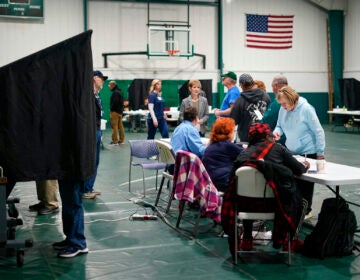Despite recession and high gas prices, why do Americans still love their gas-guzzling SUVs?
Is there another country in the world as fond of gas-guzzling sport utility vehicles and pick-up trucks as the good old U.S.A.? They’re not seen or used as much in Europe or Canada, and certainly not in Japan, where gasoline is heavily taxed and sold by the liter.
It takes a combination of affluence and low gas taxes to make these vehicles popular. And of course there has to be some additional intangible, since less expensive and more fuel-efficient alternatives are available. Could it be marketing? I grew up in Michigan where the marketing of motor vehicles combines artistry and psychology, and where the bigger the vehicle, the bigger the profit margin.
For men a big truck or SUV makes them feel manly. U.S. Senator Scott Brown of Massachusetts won his underdog campaign as an ordinary guy who drives a truck, even though he’s a lawyer and politician.
Women favor big SUVs for making them feel secure on the highway. They like the visibility, bulk, and power of SUVs and consider them all to be safety features.
Drivers of large-size vehicles all claim to need them. But check out how many of them are actually used for commuting during rush hour by a single driver, and without any apparent cargo. How many drivers have families that wouldn’t fit in a regular-sized car? How many are actually used for car pools? And of those, how many car pools couldn’t fit in a regular-sized car?
There’s one more element to our big truck and SUV culture, a lack of concern about air pollution and global warming. Some of us seem to think there are no such problems. Others think those problems exist but are not caused by us. And some just don’t care. Is it a coincidence that the U.S., with the largest SUV and pick-up truck culture has also become the bastion of global warming skepticism?
And we’re also getting more comfortable with high gas prices. Remember when you first paid $2 for a gallon of gas, and then $3, and then $4. Each time you crossed another dollar threshold it seemed significant, something to be noted at home or the office.
But with gas hovering now between $3 and $4, that’s become the new normal, and the Wall Street Journal reports that after a dip in big vehicle sales because of the recession, sales of trucks and SUVs are selling now at the strongest pace in more than two years, and outselling cars at many auto makers.
The increase in big vehicle sales is a hopeful sign that perhaps the worst of the recession is behind us now. But it also demonstrates how embedded the large energy-consuming vehicles have become in American culture. If even the recession and high gas prices can’t slow our energy consumption and the resulting pollution and emissions of green-house gases, what will?
The Simpson-Bowles deficit-reduction commission recommended additional taxes on gasoline. Higher gas taxes, like those in Europe, Canada, and Japan, would increase needed revenue for the federal government, limit growth of energy consumption, and expand the U.S. market for more technologically efficient vehicles. But Americans are proud of our exceptionalism, and it’s hard to imagine circumstances or politicians willing to take the heat for increasing the tax on gasoline.
WHYY is your source for fact-based, in-depth journalism and information. As a nonprofit organization, we rely on financial support from readers like you. Please give today.




